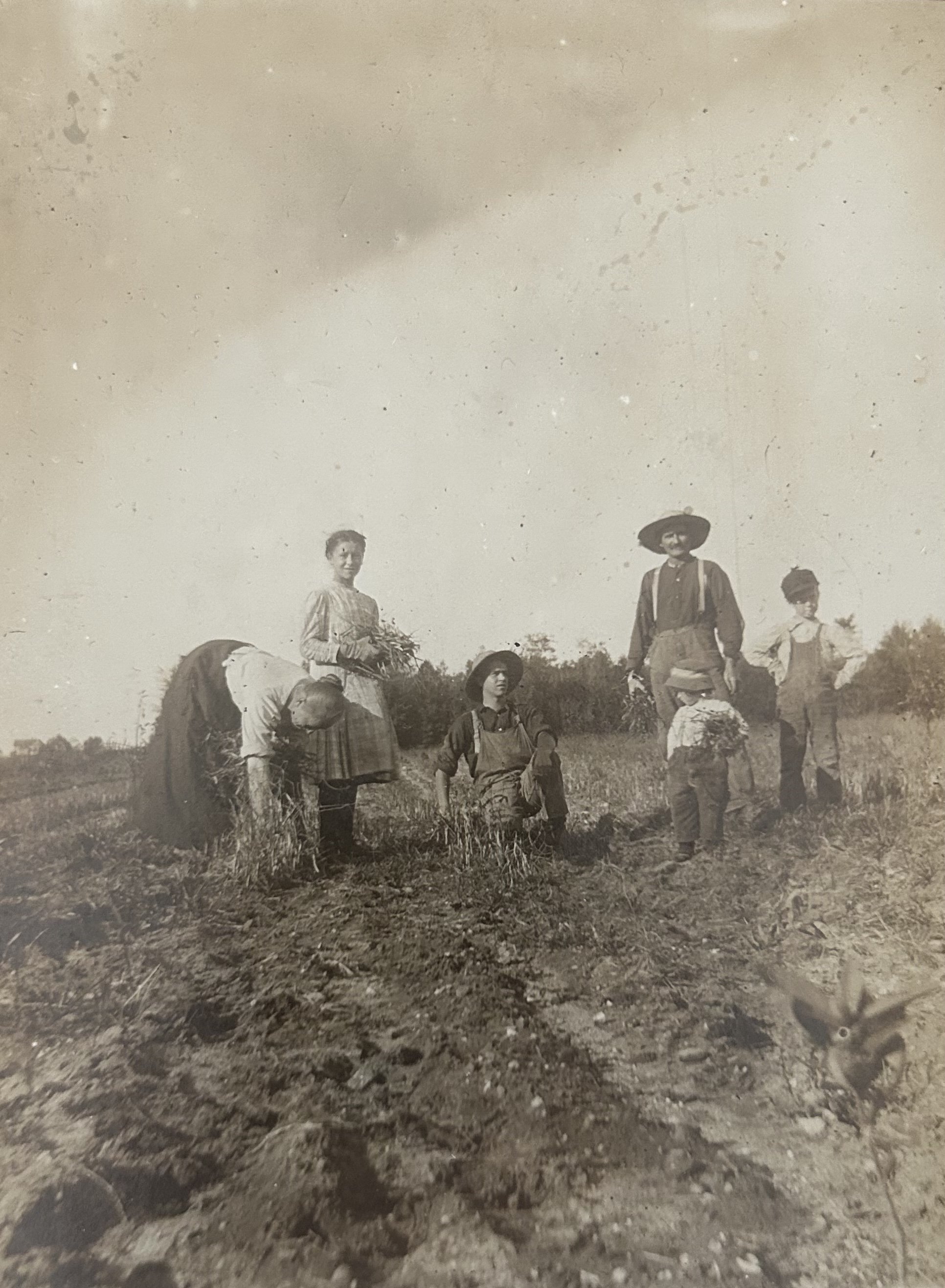
A New Chapter for an Old Farm
We are a 5th generation family farm located in beautiful Leelanau County, Michigan. An introduction to the farm requires some history, as we believe understanding and acceptance of the past is essential to building a more loving and sustainable future for all. The 16 acres we live on, farm, and love dearly were purchased by our family in the 1890s after being seized from the indigenous people who had called the Leelanau peninsula home since time immemorial. We recognize this truth and feel its weight. We thank and respect the Anishinabe people for their stewardship of this land and these waters. We are committed to decolonizing our minds and relationship with the land, as well as doing what we can to enact land justice.
After the land was sold to our ancestors, German farmers who had recently crossed the Atlantic in search of religious freedom, it was cared for differently, based on the western belief that to care for land is to control it. The first members of my family to live at the farm stripped it of the giant trees that covered the rolling hills. They used the wood to construct houses and a barn. They gutted the land with tillage and planted acres of row crops. They did as their culture had taught them. To them, to own land was economic and physical security by means of cash crops and gardens that fed the family. But there is plentiful evidence that they loved the land for other reasons: my great grandmother and her mother before her planted and tended an impressive array of exquisite ornamental plants, for no other reason than to enjoy the spectacular blooms. The descendants of these ornamentals, and many of the very same perennials, still exist at the farm today and are a stunning reminder of the splendor of nature. Letters found in the farmhouse written in the early 1900s, a time during which our family was briefly forced to sell the farm to find work in Detroit, express longing to once again be together at the old farm and tell of the peace and solitude they found there.
“Mother, how I wish we all were back on the old farm. Don’t you wish it too?”—
Theodore Groesser
Theodore is my great-grandma Mildred’s older brother, speaking of our farm when living in Detroit to find work. Due to financial reasons they had to sell the farm in 1917. Somehow, in 1919, the new owners deeded it back to Jacob and Katherine, giving Theodore his wish.
The farm has also always been a place of community. Many a funeral, wedding, and birthday party were held here for family members and neighbors alike. Letters and notes from neighbors describe The farm as a joyful, friendly place where neighbors were always welcome and could find assistance, supplies, or a delicious Sunday supper. At present, The Farm is home to 3 generations of our family, including my parents, grandparents, my partner and I, and my younger sister.
The farm has had a reprieve from commercial farming since the early 2000s. 20 years of allowing nature to take her course has already returned some wonderful wildness to the land. A field that once produced monocrops of corn and hay now flourishes with the beginnings of a diverse forest: a carpet of wild strawberries shaded by wildflowers, towering autumn olive bushes that droop heavy with berries in the fall, and a diversity of baby trees that sprang up all on their own being nursed by the shade of the bushes they will soon outgrow. Our goal is to aid nature in this progression towards diversity and abundance, and combine the farm’s dual history of wilderness and agriculture to create something that has never existed here: an agrisystem that provides abundant food, medicine, and beauty, as well as benefits the soil, air, water, and ecosystem it is a part of. Perhaps most importantly, we wish to share the joy, spirituality, and fulfillment that can be found in nature and in farming with anyone that wishes to experience it.
The people come and go. But the land witnesses it all. It deserves our reverence and respect. It deserves to be revered, not for what we can take from it but for what it gives freely. Re-wilding the land is our way of setting it free.